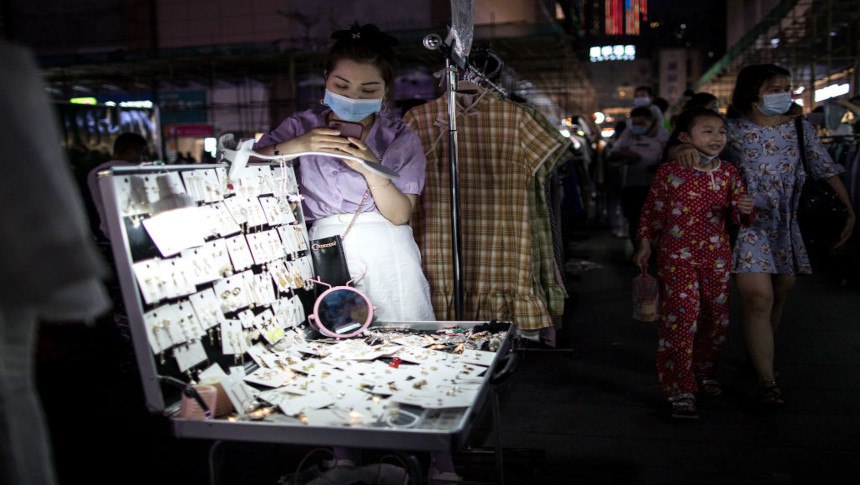Recently, more than 40 Chinese smuggled fishing boats to Cambodia to work. On the way, they encountered a mechanical failure and the fishing boat sank, killing 1 person and missing 10 people in the sea. The Shanghai authorities have revised the “Shanghai City Appearance and Environmental Sanitation Management Regulations” to allow street stalls The business activities have highlighted the increasing confrontation between China and Western countries and the blow to China’s economy and the hardship of people’s livelihood due to the reset policy under the epidemic.
According to mainland media reports, Chinese stowaways suffered a shipwreck accident in the waters near Xigang on the 22nd. The fishing boat carried a total of 41 Chinese citizens (including 3 women), of which 30 were rescued, 1 was killed, and 10 are still missing. The Chinese set out from Guangzhou on September 11, entered the high seas on the 17th, and then boarded a Cambodian fishing boat. When they arrived in the waters of Xigang on the 22nd, a mechanical failure occurred, causing the boat to sink to the bottom of the sea.
Mr. Fan, a Cambodian Chinese businessman, told Free Asia that the lack of employment opportunities in China has led to many Chinese smuggling to other countries, and there are still many such smuggling incidents.
According to Cambodian media reports, in August and September this year, 35 people departed from China to Cambodia, and another 30 people were arrested by boat. These 30 people did not have passports. In July last year, 36 Chinese were arrested while smuggling from Fujian province to Westport.
Mr. Guan, a business owner in Dongguan, pointed out that with the confrontation between China and Western countries such as Europe and the United States, as well as the impact of the CCP virus epidemic, many companies are now closed or even bankrupt, making it difficult to find jobs. “Dongguan is all three-to-one-supplement enterprises, and foreign processing enterprises. Many orders come from Europe and the United States, especially many electronic industries. The orders are all cancelled. What do you do if you don’t have an order? All Dongguan and the whole of China are the same. Let’s compare Dongguan One point to highlight. In the event of an epidemic, the company has to rush out the goods and clear them all day, making it impossible for people to go to work or deliver goods.”
Xie Tian, a professor at the Aiken School of Business at the University of South Carolina, said that this shows that the entire economic situation has changed now. The industrial chain and manufacturing industry have indeed left China, and orders have also flowed to Southeast Asian countries such as Vietnam and Cambodia. : “These people went to Vietnam and Cambodia to work, which is actually a very humiliating thing for the Chinese (CCP) government. You say that you have lifted out of poverty and become very developed, but you, a developed country, actually went to Cambodia. Part-time work, this face-slap is still full of weight.
On the 22nd, the Standing Committee of the Shanghai Municipal People’s Congress passed the revision of the “Shanghai City Appearance and Environmental Sanitation Management Regulations” to lift the ban on street stalls. In addition to key areas such as main roads, landscape areas and commercial concentrated areas, the authorities allow districts and township governments to designate areas for business activities such as setting up street stalls and selling self-produced agricultural and sideline products. The new regulations will be implemented on December 1 this year.
Xie Tian believes that setting up street stalls cannot completely save Shanghai’s economy, or any economy, because it is a small-scale, small-scale job that can only solve the employment problem of some people, and the main Shanghai people will not go to street stalls. And it will bring a certain blow to store business and tourism.
Xie Tian said: “The Shanghai government is a bit cornered. The economy has declined sharply in the previous period and the finances are insufficient, so now it is a problem of employment. The unemployment rate is too high, and I am also worried that poverty will trigger social problems. The domestic demand of the whole Chinese people is reduced, not too much. the disposable income to buy, that’s its biggest problem.”
